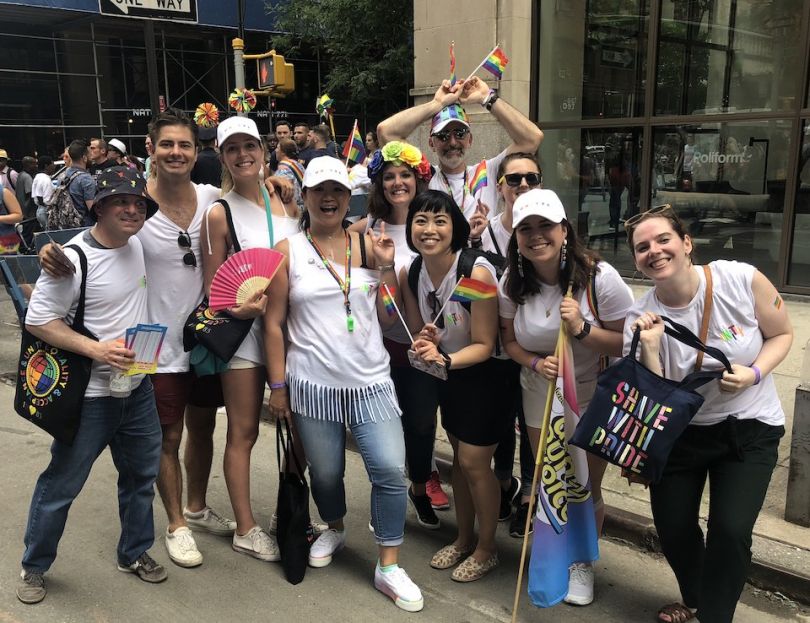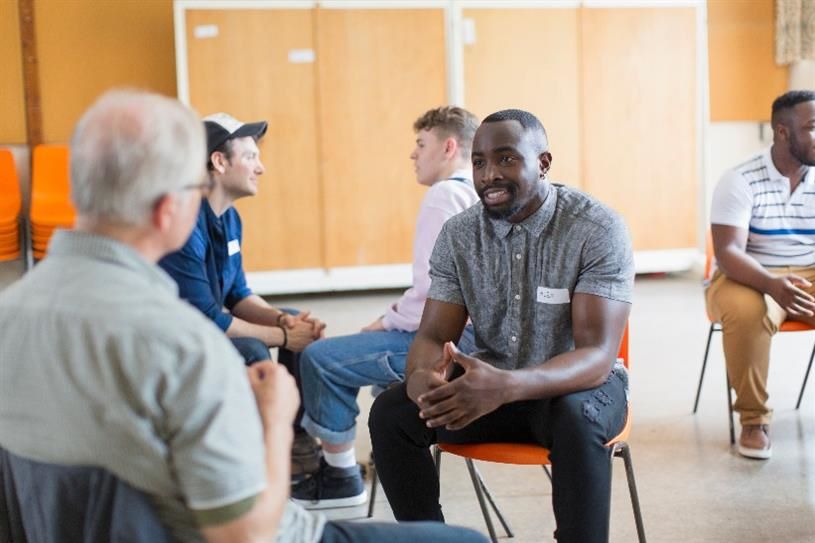Companies outside of non-profit organizations, like Harry’s Inc., are beginning to take on the social mission of supporting men’s mental health. One study found that men are twice as likely to attribute mental health challenges to work rather than factors outside of work. However, men’s mental health in particular often goes un- or underdressed—especially in the workplace—due to prevailing stereotypes and stigma surrounding men, vulnerability, and emotional expression.
The landscape of both masculinity and men’s mental health in the workplace is experiencing a necessary change. When Harry’s decided to focus on men’s mental health, they knew that they would also have to walk the walk. How would their own internal initiatives and company culture support the cause? Mind Share Partners interviewed Harry’s Head of Social Impact, Maggie Hureau, to learn more.
Mental Health As A Social Mission Fosters Impact Outside And Inside An Organization

Harry’s has been donating 1% of their sales to nonprofit organizations since 2013, but they’ve since evolved to maximize impact and focus to help 500,000 men get access to quality mental health care by 2021.
Maggie highlights one example, “We worked with two partner organizations that support veteran populations, Headstrong and Stop Soldier Suicide, to create a video that told the real stories of three veterans navigating PTSD. Our partners saw a very real impact, with each organization reporting an 80% and 160% increase in veterans reaching out for help.” Maggie adds, “We also donated half a million dollars to Headstrong and Stop Soldier Suicide to bring quality mental health care to veterans and their families as well.”
Harry’s activities aren’t limited to external partnerships. “Internally, on a recent Friday, we gave the entire company a mental health day off,” shared Maggie. “The team had been working really hard on a number of business challenges, and we wanted to allow them some space to unplug and recharge by using the day however they wanted. This was an initiative that started from the top down. Our leadership and founders, Jeff and Andy, have been vocal about the importance of making time for self-care, and they drove the idea of having a company-wide day off.”
Mental Health Shouldn’t Be A One Size Fits All Solution

When we asked Maggie about some of the ways Harry’s is supporting the mental health of its employees, she explained, “It’s important to take a holistic approach to mental health in the workplace. There’s no one silver bullet program that will address the needs of every employee. We know that mental health is nuanced and means something different for everyone, which is why we want to be thoughtful about the benefits and policies we put in place.”
Culture change of any kind requires top-down and bottom-up support. Mental health is no different. Harry’s current approach addresses mental health through benefits and policies, management and culture, awareness through internal education, and getting their team involved.
“While we’ve always set big goals for giving back and shared them out in the world,” Maggie expressed, “when it came to who we impact, we also wanted to make sure our team was taken care of. It’s important to us that they’re given the opportunity to live our values and have the tools to address their own mental wellbeing. This led us to take a look at our own programs, policies and how we approach mental health internally.”
Providing benefits that can bring employees more ease to the workday is important. “First and foremost, it starts with the benefits, policies and perks we offer employees, like our flexible time off policy and paid time off to give back and volunteer. This also includes generous and inclusive parental leave, access to benefits, concierge services for on-site checkups and health consultations, as well as health and wellness reimbursements,” Maggie shared.
Mental health at work is not just benefits, it requires culture change. “We’ve built a culture that values honest and direct feedback, Maggie highlights. “It’s built into our management philosophy, structure, and lifelong learning. We outwardly showcase these values by talking openly with our employees about the challenges faced by men struggling with mental health, and by providing opportunities for our employees themselves to engage in activities that positively impact wellbeing. For example, during mental health awareness month in May, we offered activities including yoga, meditation and volunteering opportunities, which over 60% of our team participated in.”
Harry’s gives their team time and resources to give back to the cause. “We get our team involved in the cause area, Maggie revealed. “This year, we opened up a volunteer opportunity for employees to sign up to be crisis counselors with Crisis Text Line and The Trevor Project [which focuses on LGBTQ+ youth]. We have four team members that are currently volunteering as crisis counselors, taking on texts and calls to support those in crisis.
All of these things combined help us keep mental health a priority internally at Harry’s. We are also continually learning from other workplaces, and our nonprofit partners who have been excellent in pushing us to prioritize mental health at work.”
Advice For Other Leaders Who Want To Make Mental Health Their Social Mission

Maggie answered, “We’re biased, of course, but we think this should be top of mind for leaders everywhere. Mental health is an issue that urgently needs our attention, and it would be inspiring to see more companies take it on as a cause.”
“First, walk the walk. It isn’t enough to just talk about the importance of mental health; you need to live it by giving back to organizations that meaningfully support mental health initiatives and programs.
Externally, it’s important to not shy away from mental health and the difficult things that come with it (i.e. suicide, depression, and mental illness) just because they’re hard to talk about. Combating stigma starts with normalizing the conversation.
Finally, invest in your team’s mental health. Allowing your team the space, flexibility, and resources for their own mental wellbeing pays itself back in spades.”


